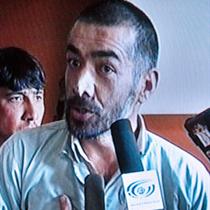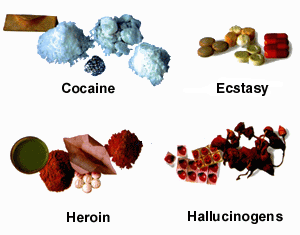Sarkozy Wins Presidency, Vows Reform

Hello Friends,
This being my first post since July, I would like to thank you for returning to my site and continuing to be an integral part of the ongoing political debate that will accentuate 2007. I'd also like to remind readers that I will post any article submitted to me, regardless of partisan tidings. Fruitful opinions and debate are the main goal of this forum. Now, back to business... :)
On May 7, Nicolas Sarkozy and his Conservatives captured 53% of the French vote en route to winning an election that could not have come at a more important time. Running on the premise of massive economic reform and curbing the influx of France's uncontrollable immigrant population, Sarkozy made his mark prior to winning the Presidency just days ago.
Since the war in both Afghanistan and Iraq, France has solidified itself as a vocal yet subdued member-state in the Western coalition. Quick to criticize those who rescued it in years past, the country has taken on the image of one becoming increasingly hostile toward the political and economic system which garnered its success and world-presence.
Such a stance has undoubtedly led it down a path of self-destruction. On one front is an unemployment rate soon-to-reach double digits. The overall standard of living is on the decline, and with the average work-week registering only 35 hours, one can only assume will deepen in time.
On the other front is an increasing hostile yet growing population of immigrants. The world looked on in disbelief last year as large groups of Arab youths went on a rampage through France for weeks on end in 2006, burning cars and torching homes while wrecking havoc on a country which has taken them in with no pre-conditions, housed them, and supported them through welfare systems.
France's previous leader has, for the past five years, taken the route of ignoring such actions in hopes they will disappear if no one pays them any attention. Such a passive outlook has only worsened the country's present and future state, and on Monday, a gentleman by the name of Nicolas Sarkozy took the reigns with a new and refreshing outlook.
In his acceptance speech, Sarkozy acknowledged in front of his fellow citizens that the title "Sarkozy the American" bestowed upon him by his Socialist opposition was something he took pride in, something he felt should not be hiden. He declared himself an avid believer in the American system, that hard work and tax cuts as its reward would revolutionize the financial standing of a country looking for an answer.
In strengthening both the domestic and foreign outlook of France, Sarkozy looks to posture his country as an economic powerhouse in years to come. He doesn't promise goals which are unattainable, nor does he suggest that greatness will be thrust upon the people of France overnight. He offers a path to success, extending his hand to those willing to make a difference. Such a change requires a community willing to work longer hours for themselves, not for others.
The current system sees a country noted as having the fewest working hours on average of any European Union member. With dwindling numbers, the country has still managed to upgrade its support to non-active members of the country, namely those immigrants who enjoy the benefits of living on funds they have not earned. Sarkozy is adamant about ending this cycle of self-destruction, which is welcomed by the majority in France who are tired of the position Jacques Chirac has left them in.
Domestically, both the USA and Germany are the 'poster boys' for such a plan. High productivity and incentives given to those playing an integral role in the turnaround are intended to provide the fuel for France's economic reconstruction. Internationally, France will look to align itself with those who share its economic/political/social goals, namely Washington.
In the past, Nicolas slammed members of his own government for their anti-war stance.“You must have loathed us then,” he told the American media. France's foreign policy made him feel like a stranger in his own land. On Monday, in front of a cheering and supportive crowd, he stated "I want to call out to our American friends to tell them they can count on our friendship,” reassuring his friends across the Atlantic that it was time to rebuild what had been shattered during the Iraq War.
Sarkozy has been vocal about following America's lead in such troubled areas as Africa and the Middle East. Having Jewish ancestry on his mother's side, he is a self-proclaimed 'friend of Israel'. Unlike his predecesor, he disagrees in laying blame equally in order to sustain nuance. When questioned about the Summer War of 2006, he accentuated his belief that Israel was a victim of terrorist aggression during the war with Lebanon, further calling Hezbollah a terrorist group out to destroy Israel.
Nicolas also looks to lead the coalition against Iran's growing nuclear program, offering to support any amendment which would sanction the country, and even create his own legislation to sanction Iran further. Sarkozy depicted Iran as “the most important problem on the international scene” and said calls by the Iranian president for Israel’s destruction represented the most serious threat to world peace.
He intends to keep Turkey on its heels by denying them acceptance into the EU on the grounds that they have not yet met economic and humanitarian protocol, and that their current values aren't similar to Israel and Lebanon (countries which have the potential to join the EU).
It is clear that Sarkozy has his work set out for him. A timeframe has not yet been put in place for his specific endeavors, but it's clear that he's ambitious and driven towards change. The world awaits his next step.
-Josh Bower







